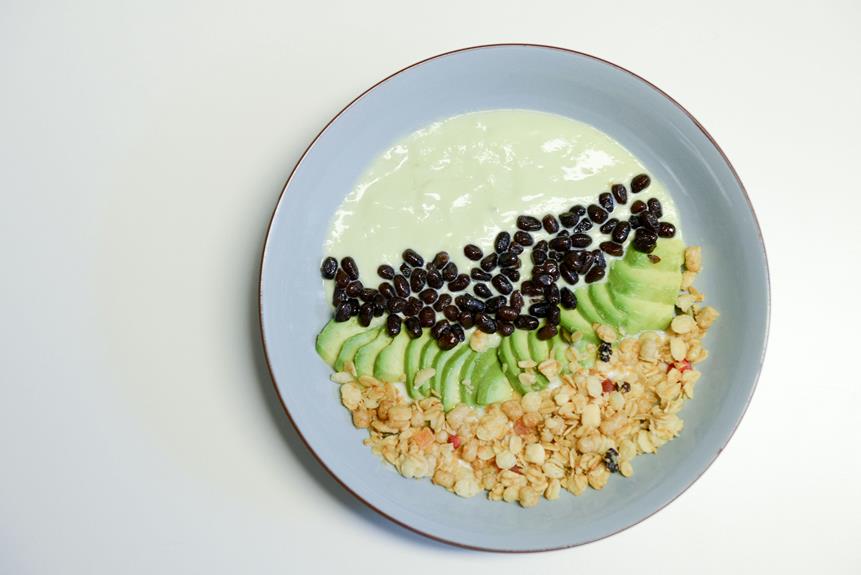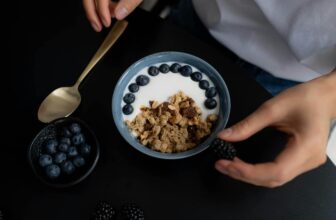
When it comes to incorporating protein supplements into a balanced diet, you might find yourself wondering about the best strategies to do so effectively. From pre to post-workout options and mealtime enhancements, the versatility of protein supplements can offer a valuable addition to your nutrition plan. By exploring various ways to seamlessly integrate these supplements into your daily meals, you can elevate your protein intake and support your fitness journey in a practical manner. So, what are some key considerations to keep in mind when optimizing your diet with protein supplements?
Benefits of Protein Supplements
If you frequently engage in strenuous physical activity, incorporating protein supplements can aid in muscle recovery and growth. When you push your body through intense workouts, your muscles experience micro-tears that need to be repaired to grow stronger. Protein is essential for this repair process as it provides the building blocks necessary for muscle recovery.
Additionally, protein supplements can help you meet your daily protein requirements more conveniently. Sometimes it can be challenging to consume enough protein through whole foods alone, especially for individuals with high protein needs. Protein supplements offer a quick and easy way to boost your protein intake without having to prepare elaborate meals.
Moreover, protein supplements can be beneficial for weight management. Protein is known for its ability to promote feelings of fullness and reduce overall calorie intake. By incorporating protein supplements into your diet, you may feel more satisfied after meals, which can help prevent overeating and support your weight loss or weight maintenance goals.
Types of Protein Supplements
Exploring the various types of protein supplements available can help you make informed choices to support your fitness goals effectively.
Whey protein, derived from milk, is a popular choice due to its quick absorption rate, making it ideal for post-workout recovery.
Casein protein, also from milk, digests more slowly, providing a sustained release of amino acids and making it suitable for a nighttime supplement.
Plant-based protein supplements, such as pea or rice protein, are excellent alternatives for vegetarians or individuals with lactose intolerance. These options offer a complete amino acid profile while being easily digestible.
Collagen protein, sourced from animal connective tissues, supports joint health and may benefit skin elasticity.
Egg white protein is another high-quality option that's lactose-free and rich in essential amino acids.
Selecting the right type of protein supplement depends on your dietary preferences, fitness goals, and any specific dietary restrictions you may have.
Timing of Protein Supplement Intake
Consider the optimal timing for incorporating protein supplements into your daily routine to maximize their benefits for muscle recovery and growth. To make the most of protein supplements, it's crucial to consume them at strategic times. One key moment is post-workout. After exercising, your muscles need protein to kickstart the recovery process and stimulate growth. Consuming a protein shake or supplement within 30 minutes to an hour after your workout can help replenish energy stores and repair muscle tissue effectively.
Another important time for protein intake is before bed. As you sleep, your body goes into repair mode, making it an ideal time to provide your muscles with the necessary nutrients for recovery. A slow-digesting protein supplement, like casein, can be beneficial before bedtime to support overnight muscle repair and growth.
Incorporating protein supplements strategically throughout your day can help optimize muscle recovery and growth, ultimately enhancing your fitness goals. By being mindful of when you consume protein supplements, you can make the most of their benefits and support your overall performance and well-being.
Incorporating Protein Supplements Into Meals
To optimize the benefits of protein supplements, it's important to integrate them strategically into your meals to support muscle recovery and growth. When incorporating protein supplements into your meals, consider adding them to foods like smoothies, yogurt, oatmeal, or even baked goods. This can enhance the overall protein content of your meal without adding excessive bulk.
Mixing protein powder into smoothies with fruits and vegetables can create a balanced post-workout meal. Additionally, adding protein powder to yogurt or oatmeal can boost the protein content of your breakfast, supporting muscle repair and growth throughout the day.
For lunch or dinner, consider preparing meals with lean protein sources such as chicken, fish, or tofu, and complementing them with a protein shake or protein-rich side dish. This combination ensures you're meeting your protein needs for muscle maintenance and growth. By strategically incorporating protein supplements into your meals, you can better support your fitness goals and overall health.




